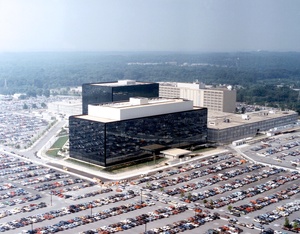OpenGov Voices: More openness, less secrecy

Since the 1950s, America has slipped into more and more secrecy, a trend that was particularly exacerbated after Sept. 11. Of course, some government information is and should be secret. But far too much is classified as such and then kept this way for far too long.
This shift undermines the pillars of American democracy. Jefferson’s Declaration of Independence said governments “deriv[e] their just powers from the consent of the governed.” In the Federalist Papers, Madison said that, through voting, the people are the “primary control on the government.” If American democracy is to attain its aspirations, our consent and our vote must be informed. Similarly, Lincoln in his Gettysburg Address, called for a new birth of freedom, so that “government of the people, by the people and for the people, shall not perish from the earth.” But if government is to be by the people, necessary information cannot be hidden from the people. If it is, we become a democracy in the dark.
Around 100 million documents per year are classified, a mind-boggling figure. Some reflect necessary secrets. Some hide illegality or embarrassment, and some are stamped secret for more banal reasons, including the need to be noticed. Conventional wisdom is that documents not stamped top secret (or higher) will never get read. So secrecy spawns more secrecy.
There are, moreover, harms from secrecy that do not reflect either malign or banal motives. One example is the failure by the White House to disclose top secret information received during the summer before Sept. 11, when the CIA provided many warnings about al Qaeda activity. But these top secret documents were given to only a tiny handful of high-ranking officials, including the president and vice president. Nobody considered whether the gist of the warnings should be disclosed to government officials responsible for preventing terrorism or to the public. Simply assuming without any thought that what is secret should stay secret is a common error, yet, had those warnings been shared, perhaps Sept. 11 could have been prevented.

Edward Snowden’s revelations that the NSA was covertly collecting metadata — location data, duration, unique identifiers and phone numbers for telephone calls made in America — raise a related issue. Even though the content of the calls is not collected, the government can paint a picture of the private, intimate lives of all Americans from the digital crumbs that are swept up in this metadata. Of course, the program raised questions about legality, privacy and the balance between safety and secrecy in an increasingly connected world. But the NSA revelations raised a more fundamental point: Before George W. Bush veered in a new direction, and Barack Obama continued to do so, they should have fostered an open democratic debate about engaging in such a broad surveillance program.
These examples and many more illustrate the seduction of government secrecy. Instead of focusing only on the dangers of disclosure, the American public and government should give greater attention to secrecy’s dangers and to the benefits of openness.
Fortunately, there are reasons to be somewhat optimistic that we will do so. Unlike most issues today, there is bipartisan support for more openness: The restrictions on NSA surveillance policies that followed the Snowden revelations were supported by both Republicans and Democrats. Another reason for guarded optimism is that some of the most respected security professionals are beginning to conclude that excess secrecy is now harming national security by preventing crucial information from getting to the right officials as fast as possible.
America will not thrive in a secrecy culture. We have a choice: Will we continue down secrecy’s path of silence and darkness — or will we let the sunlight shine in?
Interested in writing a guest blog for Sunlight? Email us at guestblog@sunlightfoundation.com

